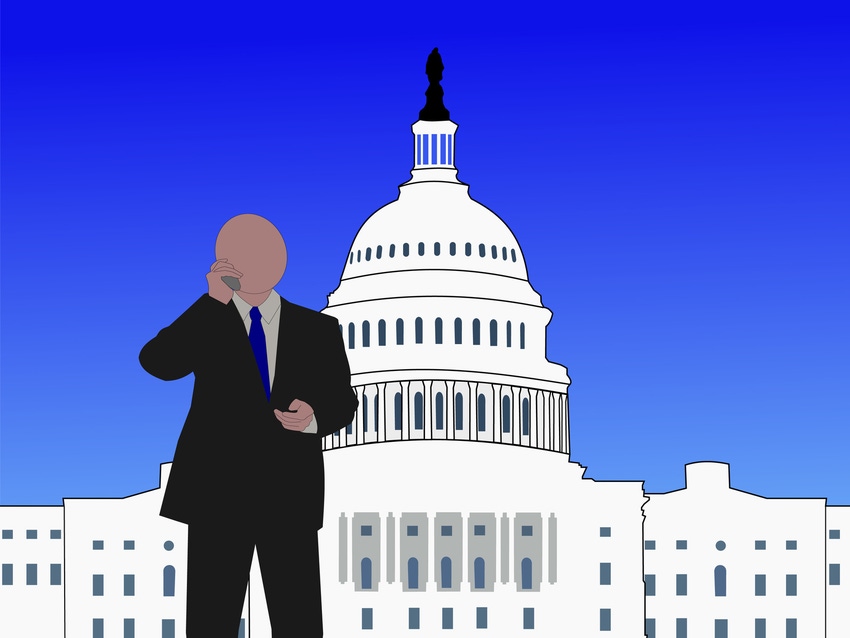One Senate subcommittee is searching for the silver bullet to the network infrastructure conundrum, though Nokia and other industry figures have warned against politicians making procurement decisions.
March 6, 2020

One Senate subcommittee is searching for the silver bullet to the network infrastructure conundrum, though Nokia and other industry figures have warned against politicians making procurement decisions.
The Senate Committee on Commerce, Science, and Transportation has been hearing testimonies from various industry figures to examine the security and integrity challenges for telecommunications networks. The objective is to create regulation and legislation which benefits all, except the Chinese, and maintains security principles.
But in the pursuit of national security, some in the industry question whether the US Government is extending its influence too far into the business operations of the telcos. One concern which has been raised is if it would be a sensible decision to legislate what technologies the telcos have to use.
In his opening statement, Subcommittee Chairman Roger Wicker not only condemned Chinese vendors and the threat posed by China in the digital economy, but suggested Government should be playing a more active role in the development of standards and deployment of 5G. This is all well and good, until Government starts to make telco decisions for the telcos.
Below, we have taken a few extracts from the testimonies to demonstrate the concern from the telco industry.
Steve Berry, CEO, Competitive Carriers Association:
However, policymakers should not mandate which technologies are used in wireless networks, but instead should encourage research into new, secure technologies to enhance customer choice, innovation, and cost savings. For carriers with existing network infrastructure, additional research may facilitate increased ORAN deployment as well, and it is important that all network operators are positioned to manage additional steps for interoperability across multiple vendors.
Mike Murphy, CTO, Nokia Americas:
In short, there is limited maturity in both ORAN and Radio Access Network virtualization. For this reason, Nokia believes that putting these burdens on rural carriers, the least capable of being early adopters, would be unreasonable and should not be a pre-requisite for federal funding to replace their existing equipment, at this time.
James Lewis, Director of the Technology Policy Program, Center for Strategic and International Studies:
The move to an open, modular approach to telecom will change supply chain dynamics in ways that favour the US (and Japan). The supply chain for telecom will depend on semiconductors, chipsets, and specialized software (including “open source” software), all areas where the U.S. has a substantial lead over China – in some cases there are no Chinese competitors. Estimates of how long this telecom transformation will take range from three years to a decade.
In an effort to combat the attractiveness of Huawei and ZTE technology to small and rural telcos, the US Government has created a Public Wireless Supply Chain Innovation Fund of at least $750 million and a Multilateral Telecommunications Security Fund of at least $500 million. Through these two financial packages, it is hoped viable and commercially feasible alternatives can be created.
As part of securing funding, there is some suggestion in official documents that implementing Open RAN technologies could be a pre-requisite. Encouraging the industry one direction is fine, but forcing telcos, and in this case the likelihood is small telcos, to adopt a technology which is not yet market ready is a potentially worrying path to take. This position has of course not been written into legislation or regulation, but the opportunity to do so is there.
While it is far from uncommon for Governments to want to shepherd the development of an industry, the level of intervention which is currently feared should not be considered healthy. Bureaucrats work in bureaucracies because they are good at bureaucracy. Engineers work engineering projects because they are good at engineering. The status quo seems perfectly acceptable so why should it change.
Sometimes Government should just be Government, and it should let private industry be private industry.
About the Author(s)
You May Also Like








.png?width=300&auto=webp&quality=80&disable=upscale)


_1.jpg?width=300&auto=webp&quality=80&disable=upscale)


.png?width=800&auto=webp&quality=80&disable=upscale)